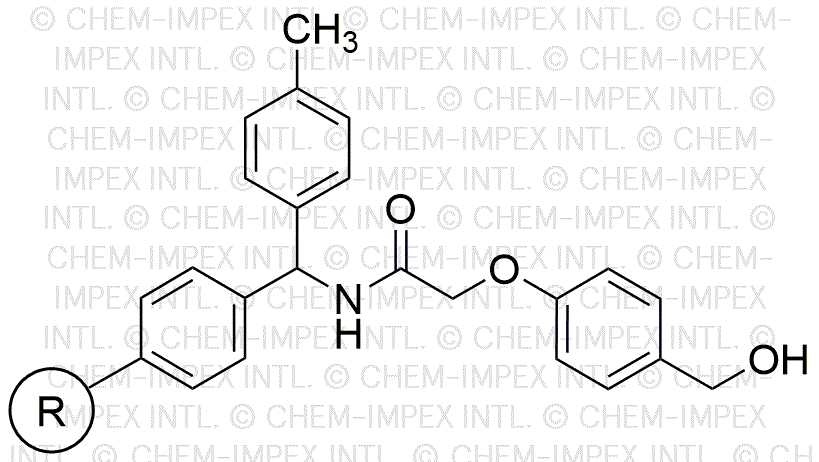HMPA-MBHA resin (0.6 - 1.2 mmol/g, 100 - 200 mesh) is widely utilized in research focused on:
- Peptide Synthesis: This resin serves as a solid support for the synthesis of peptides, allowing researchers to create complex molecules efficiently and with high purity.
- Drug Development: In pharmaceutical research, it aids in the development of new drugs by facilitating the attachment of various functional groups to drug candidates, enhancing their efficacy.
- Bioconjugation: The resin is used to link biomolecules, such as proteins or antibodies, to other molecules, which is crucial for creating targeted therapies in cancer treatment.
- High-Throughput Screening: Its properties enable rapid screening of multiple compounds, streamlining the process of identifying potential drug candidates in medicinal chemistry.
- Custom Polymer Synthesis: Researchers can utilize this resin to create tailored polymers for specific applications, such as drug delivery systems or diagnostic tools, providing versatility in material design.
General Information
Properties
Safety and Regulations
Applications
HMPA-MBHA resin (0.6 - 1.2 mmol/g, 100 - 200 mesh) is widely utilized in research focused on:
- Peptide Synthesis: This resin serves as a solid support for the synthesis of peptides, allowing researchers to create complex molecules efficiently and with high purity.
- Drug Development: In pharmaceutical research, it aids in the development of new drugs by facilitating the attachment of various functional groups to drug candidates, enhancing their efficacy.
- Bioconjugation: The resin is used to link biomolecules, such as proteins or antibodies, to other molecules, which is crucial for creating targeted therapies in cancer treatment.
- High-Throughput Screening: Its properties enable rapid screening of multiple compounds, streamlining the process of identifying potential drug candidates in medicinal chemistry.
- Custom Polymer Synthesis: Researchers can utilize this resin to create tailored polymers for specific applications, such as drug delivery systems or diagnostic tools, providing versatility in material design.
Documents
Safety Data Sheets (SDS)
The SDS provides comprehensive safety information on handling, storage, and disposal of the product.
Product Specification (PS)
The PS provides a comprehensive breakdown of the product’s properties, including chemical composition, physical state, purity, and storage requirements. It also details acceptable quality ranges and the product's intended applications.
Certificates of Analysis (COA)
Search for Certificates of Analysis (COA) by entering the products Lot Number. Lot and Batch Numbers can be found on a product’s label following the words ‘Lot’ or ‘Batch’.
*Catalog Number
*Lot Number
Certificates Of Origin (COO)
This COO confirms the country where the product was manufactured, and also details the materials and components used in it and whether it is derived from natural, synthetic, or other specific sources. This certificate may be required for customs, trade, and regulatory compliance.
*Catalog Number
*Lot Number
Safety Data Sheets (SDS)
The SDS provides comprehensive safety information on handling, storage, and disposal of the product.
DownloadProduct Specification (PS)
The PS provides a comprehensive breakdown of the product’s properties, including chemical composition, physical state, purity, and storage requirements. It also details acceptable quality ranges and the product's intended applications.
DownloadCertificates of Analysis (COA)
Search for Certificates of Analysis (COA) by entering the products Lot Number. Lot and Batch Numbers can be found on a product’s label following the words ‘Lot’ or ‘Batch’.
*Catalog Number
*Lot Number
Certificates Of Origin (COO)
This COO confirms the country where the product was manufactured, and also details the materials and components used in it and whether it is derived from natural, synthetic, or other specific sources. This certificate may be required for customs, trade, and regulatory compliance.


